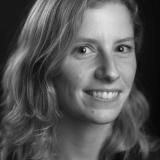dr. Marleen Balvert

Assistant Professor
TiSEM: Tilburg School of Economics and Management
TiSEM: Department of Econometrics and Operations Research
Bio
Research topics that interest me are applications of optimization and machine learning that help tackle pressing issues in people's lives, particularly applications in the medical or the humanitarian field. I am therefore involved in two lines of research. The first concerns the development of techniques that allow for the analysis of large genomics datasets. These techniques can be used by bioinformatics- or medical researchers to identify the genetic characteristics that cause a disease, which is a strong lead towards developing medication. The second line of research is in the humanitarian sector: I am a member of the Zero Hunger Lab, where our goal is to support organizations by developing optimization- and data analysis tools to improve their operations. In this way we help these organizations achieve sustainable development goal number 2: zero hunger. I very much enjoy collaborations with people in the medical or humanitarian sector as this allows us to learn from each other.
Expertise
My expertise lies in optimization and machine learning. I work in interdisciplinary projects in bioinformatics, the medical field and the humanitarian sector.
Genetics: Many diseases that cannot be cured today have a genetic cause. Often the exact disease-causing genetic characteristics are unknown, while knowing these would improve understanding the disease and developing medication. Currently large databases with genetic information of diseased people and healthy individuals are composed. I develop methods to analyze these large, complex datasets. (Funding: NWO Veni, Stichting ALS)
Zero Hunger Lab: every day 811 million people go to bed hungry. Many organizations are working hard to feed people around the world and help them improve their livelihoods so they can feed themselves. At Zero Hunger Lab we use data analytics to help organizations improve their operations and gain new insights. We call this Bytes for Bits. We aim to help achieve sustainable development goal 2: zero hunger
Teaching
Current courses:
- Operations Research Methods (third year bachelor Econometrics & OR)
- Operations Research and Machine Learning (master Business Analytics & Operations Research)
Past Courses:
- Wiskunde 1 voor bedrijfseconomie (first year Economie & Bedrijfseconomie)
- Improving Society Lab (first year bachelor Econometrics & OR)
Courses
Collaboration
Bioinformatics and medical sector:
- dr. David Craft, Massachusetts General Hospital/Harvard Medical School
- dr. Steven Petit and dr. Nienke Hoffmans-Holzer, Erasmus Medical Center
- prof. dr. Alexander Schönhuth, Bielefeld University
- dr. Jan Veldink, University Medical Center Utrecht
- dr. Basten Snoek, Utrecht University
Humanitarian sector:
- World Food Program
- Welthungerhilfe
- Nuffic
Highlights
A CV can be found here.
Recent publications
-
Iterative rule extension for logic analysis of data: An MILP-based he…
Balvert, M. (2024). Iterative rule extension for logic analysis of data: An MILP-based heuristic to derive interpretable binary classification from large datasets. INFORMS Journal on Computing. Advance online publication. -
RPA - Learning Interpretable Input-Output Relationships by Counting S…
de Vos, W., & Balvert, M. (2023). RPA: Learning Interpretable Input-Output Relationships by Counting Samples. (CentER Discussion Paper; Vol. 2023-015). CentER, Center for Economic Research. -
A Renewed Take on Weighted Sum in Sandwich Algorithms - Modification …
Koenen, M., Balvert, M., & Fleuren, H. A. (2023). A Renewed Take on Weighted Sum in Sandwich Algorithms: Modification of the Criterion Space. (Center Discussion Paper; Vol. 2023-012). CentER, Center for Economic Research. -
Corrigendum - Bi-objective goal programming for balancing costs vs. n…
Koenen, M. F. F., Balvert, M., & Fleuren, H. A. (2023). Corrigendum: Bi-objective goal programming for balancing costs vs. nutritional adequacy. Frontiers in Nutrition, 10, 1239915. Article 1239915. -
Image-based body shape estimation to detect malnutrition
Mohammedkhan, H., Güven, Ç., Balvert, M., & Postma, E. (2023). Image-based body shape estimation to detect malnutrition. Paper presented at Intelligent Systems Conference, Amsterdam.
